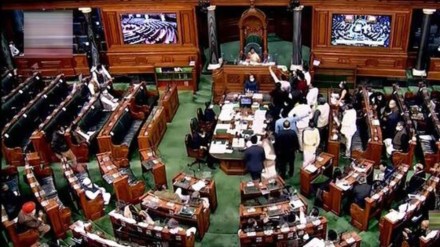The monsoon session of the 18th Lok Sabha is set to commence on June 24 and conclude on July 3. As it marks the inaugural session for the newly elected members of the lower house of Parliament, a new Speaker will be elected on June 26.
The Bharatiya Janata Party (BJP) secured 240 seats and was short of 32 seats for a clear majority. The support of NDA allies like the Telugu Desam Party (TDP) and Janata Dal (United) is more crucial than ever in forming the new government under Prime Minister Narendra Modi.
According to media reports, PM Modi is expected to propose the name of the new Lok Sabha Speaker on June 25. Then a standard procedure is followed to choose the new Lok Sabha Speaker.
Here’s how the Lok Sabha Speaker is chosen
The Speaker is elected from among the members of the lower house of Parliament. Lok Sabha MPs cast their votes in a secret ballot, and the candidate who secures the majority of votes becomes the Speaker of the Lok Sabha.
Any member of the Lok Sabha can be nominated for the position of Speaker. Typically, seniority, experience, and impartiality are important factors in the selection of the Speaker.
In both the 16th Lok Sabha (2014) and the 17th Lok Sabha (2019), the BJP secured enough seats to form a government independently, without needing coalition partners. During these terms, Sumitra Mahajan and Om Birla, both BJP MPs, were elected as Speakers of the Lok Sabha without facing any opposition.
The Speaker holds office until the dissolution of the Lok Sabha unless he/she resigns or is removed by a resolution passed by a majority of all the members of the Lok Sabha.
The Speaker of the Lok Sabha holds significant authority, including managing proceedings, enforcing rules, maintaining order, and deciding on Money Bill classifications. The Speaker is also responsible for protecting the privileges of House members and oversees the composition of committees.
